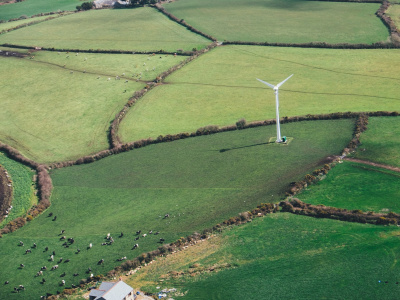
New Deal for fragile states needs time and political commitment to flourish
Some claim the 2011 Busan agreement is already in crisis, but statebuilding demands patience, resources and resolve.
The tragic series of events that have struck South Sudan and the Central African Republic (CAR) in recent months are of deep concern to us all. The g7+ – the group of post-conflict states I serve as general secretary – has felt the pain of these countries particularly keenly. All g7+ members have recent experience of the kind of instability and bloodshed afflicting South Sudan and CAR. We have first-hand experience of the maxim that conflict is "development in reverse", and know that a return to conflict can set back progress by decades.
South Sudan and CAR are pilot countries for the new deal for engagement in fragile states, the landmark agreement endorsed by 44 countries and international organisations in Busan, Korea in 2011. The new deal sets out to effect fundamental change in the way the international community works in countries emerging from conflict or at risk of it, recognising that these states have been poorly served by aid approaches designed for non-fragile environments.
Some have argued that, little more than two years after it was signed, the new deal is in crisis. As the development community met for the first high-level meeting of the Global Partnership for Effective Development Co-operation in Mexico this week - a meeting that will potentially shape the aid landscape for decades to come - now is a good time to reflect on where we have travelled since Busan, and how far we still have to go.
If recent events in CAR, South Sudan and elsewhere teach us anything, it is that the principles behind the new deal are not only sound, but more necessary than ever. The new deal calls for peacebuilding and statebuilding objectives to be at the forefront of international efforts in conflict-affected countries. That means helping those countries and their governments to strengthen security and justice systems, supporting inclusive political settlements, and ensuring citizens have access to the jobs and basic services that will help rebuild their trust in the state.
The new deal calls on international aid organisations to ensure that everything they do in these environments serves to reinforce peace and statebuilding. The new deal also calls for donors – bilateral aid agencies, UN agencies and international finance institutions – to fundamentally change their modus operandi. Operating effectively in countries in danger of falling back into conflict demands risk-taking, speedy action, flexibility, persistence and even creativity.
The tragedy is that – as the signing of the new deal demonstrates – the "better angels" within development agencies know these things; they know what works. But the systems they work within appear stubbornly resistant to change. Of course, when dealing with huge bureaucracies, beholden to cautious taxpayers, implementing reform is difficult. But in the case of the new deal, behaviour change from aid organisations has so far been chimerical.
What lessons can we draw from all this? First, we must recognise that the reorientation of international engagement in post-conflict countries is a political process, and requires real political commitment on all sides. To achieve change on the ground, the new deal must change mindsets and shift priorities at the very highest levels. Yet it has too often been seen as a technocratic exercise, something that can be "implemented" by one or two ministries and their local donors. We need to bring the politics back in. This means building momentum and commitment to change at all levels of society, from the grassroots to the president.
Second, we need to practise "strategic patience", recognising that some parts of the new deal are going to take time. In particular, generating greater country ownership over the development agenda requires the undoing of years of established practice; it needs national voices to be heard and the resumption of real leadership and accountability by our weakened government institutions, which for years have been beholden to multiple external agendas. Country ownership requires new types of dialogue between donors, government actors and civil society, and deep consultation with our citizens on their priorities and aspirations. Fragile state capacity is by definition smaller than that of our donors. We need more time than our development partners.
Third, donors and international organisations need to resist the urge to do the easy things first. A desire to rush ahead with new deal processes such as fragility assessments and compacts has arguably resulted in a loss of quality. Processes that were intended to enable consultation among our citizens have instead tended to be driven by international consultants to fit donor time schedules. Meanwhile, the things that donors really have within their power to grant – the changes to their aid and operating policies – have been deprioritised.
Many new deal enthusiasts mistakenly assumed this was going to be easy. A combination of overhyped expectations and underestimation of the difficulties involved has led many of us to rush to demonstrate technical results rather than slowly working towards real change.
Genuine statebuilding demands great investments of time, resources and political will, along with a willingness to accept the new risks and uncertainties associated with change. With the new deal, we will get out what we put in.
As governments and donors gathered in Mexico this week, two years on from Busan, we should celebrate the fact that we have started this journey together, reflect on how much further we have to travel, and then steel ourselves for the long walk ahead.
Dr. Helder da Costa is General Secretary of the g7+ Secretariat; based in Dili, Timor-Leste. Currently he is representing the g7+ on the Steering Committee of the Global Partnership for Effective Development Co-operation.
This post originally appeared in The Guardian.
The views expressed here are those of the author, and may not necessarily represent those of ECDPM.



